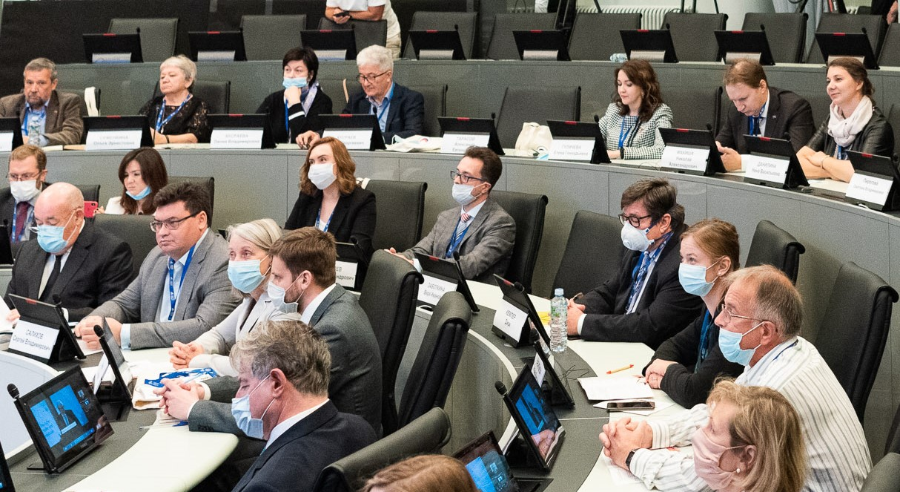The closing ceremony of the German-Russian Year of Academic Partnerships 2018-2020 was held on September 20th. Within the framework of the event, the winning projects of the competition "Russia and Germany: Scientific and Educational Bridges", jointly held by the Ministry of Foreign Affairs of the Russian Federation and the German Ministry of Foreign Affairs, were announced.
More than 120 applications had been submitted for the competition. The SUSU project was among the 25 lucky ones. The winning projects were dedicated to joint Russian-German experiments on the ISS (International Space Station), research in the field of nuclear physics, nanomaterials, permafrost ecosystems, as well as the creation of joint institutes. Our university presented the project "Cultural and Language Summer Exchange Schools: SUSU-Freiberg".
Russian-German summer cultural and language schools are organized at SUSU and the Freiberg Mining Academy every year. First, Russian students go to Germany for three weeks, and in a month they welcome German students in Chelyabinsk. The first school was organized by the Student Community of the city of Freiberg and South Ural State University in 2005. It is one of the most stable partnerships of our university: 14 schools have been held, and more than 200 Russian and slightly less than 200 German students have participated in the project since then.
.jpg)
In the process of cultural and language exchange, SUSU students are immersed into the German culture: they learn the language, master everyday routines, get acquainted with famous cities (Berlin, Dresden, Weimar) and little-known cultural monuments, travel around the Saxon Switzerland sung by German poets, and also communicate with new friends in the washed-with-the-sun cafes and pubs of the small but very cosy Freiberg.
The project manager from the German side, a Chairman of the Student Community, Thomas Schmalz, told us about the participation of German students:
“They come to learn Russian because their parents studied Russian as well; to find out what this mysterious Russian soul is, about which so much has been written; to learn how to play Russian hockey, which, as you know, distinguishes a real man from a coward; to witness the unforgettable beauty of Zyuratkul, and, of course, together with Russian students, to find the answer to the question, which is eternal for students, "Is it true that real Bavarian beer is served in the Maximilian's bar?"
The educational project became the basis for joint creative work and scientific cooperation. A film about a German pipe organ in Chelyabinsk was shot in 2009; a photo exhibition "Natural Resources of Freiberg and Chelyabinsk" was organized in 2017; many festivals were initiated (Ethnic Cuisine Festivals (2011-2013), Russian-German-Indian festival "Russian Federation in the Colours of the West and the East" (2019)); and a joint study on the integration of society during the period of self-isolation has been carried out in 2020.
The Russian-German Cultural and Language Summer School is the “brainchild” of a whole team: for many years the project has been developed by Liudmila Shestakova, the Head of the Department of International Relations, Political Science and Regional Studies; the academic staff of the Department of Russian as a Foreign Language teaches the German students the specifics of the Russian language; the Department of Modern Languages provides translators; organizational aspects are currently being dealt with by the staff of the Centre for International Education of the Institute of Linguistics and International Communications.

In addition, this is the "brainchild" of the students themselves, who make friends and communicate, study and travel, gain new knowledge and experience, and thereby help to create a positive image of Russia among young people in other countries, creating a climate of bilateral cooperation and interethnic respect, and laying a solid foundation for the successful common future.




